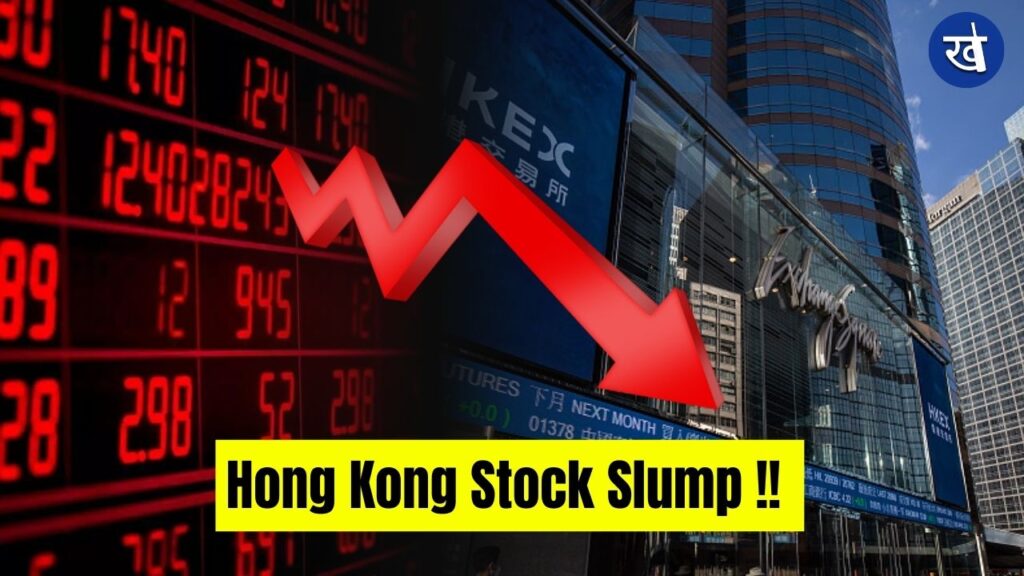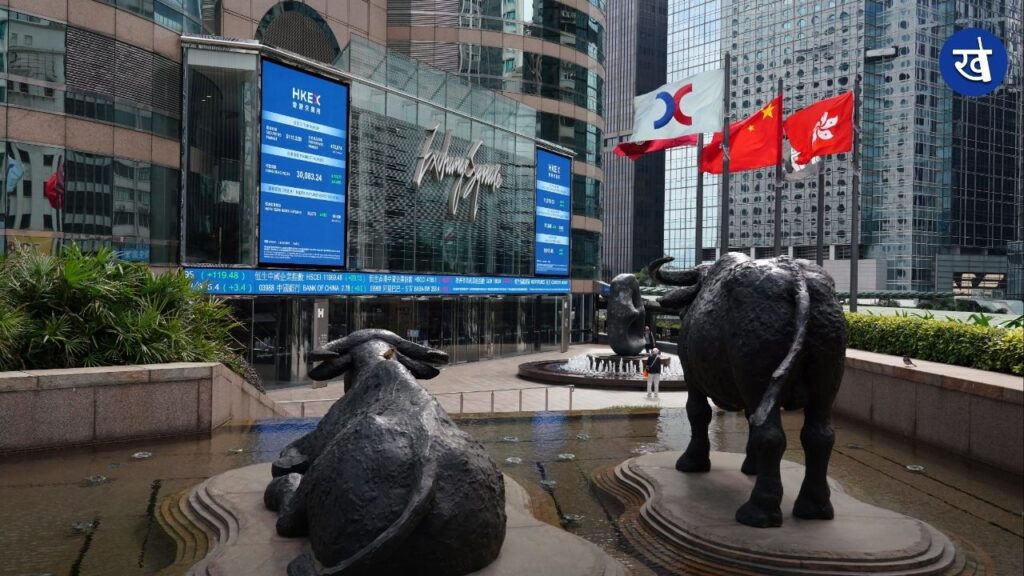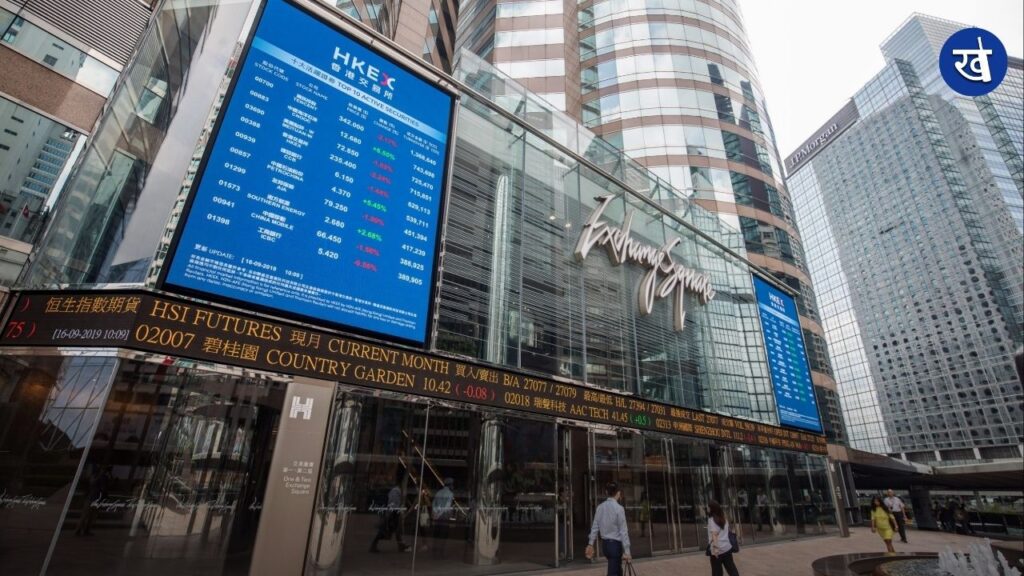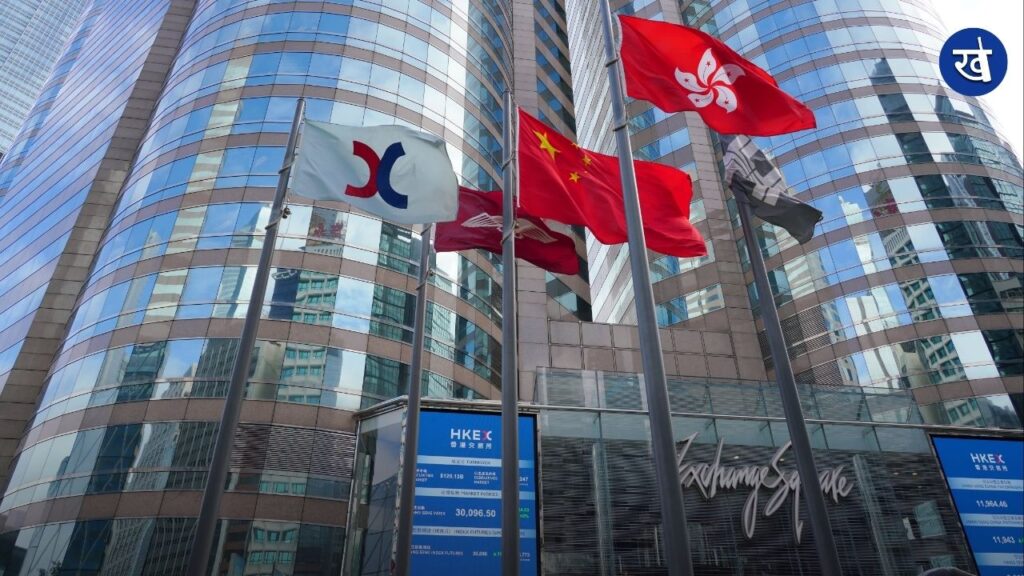
In a year marked by economic challenges and global uncertainties, Hong Kong finds itself at the center of a historic slump in its $4.6 trillion stock market. The repercussions of this downturn are echoing through the city’s financial industry, leading to a record number of brokerage firms shutting their doors. Here we have talked about the historic Hong Kong stock slump in details. do give it a read.
According to data from the Hong Kong stock exchange, 30 local brokerages have closed in the current year, following a staggering 49 closures in 2022. This trend is indicative of the severe impact of the prolonged slump in the Hang Seng Index, which is heading for its fourth consecutive year of declines – the longest losing streak in its history. The index recently hit a one-year low, reflecting the challenges faced by Hong Kong’s financial landscape. The Hong Kong stock slump has surely shaken the global stock markets.

The ongoing market downturn is not only reshaping the financial industry but is also raising questions about Hong Kong’s position as Asia’s leading international finance center. Factors such as extreme pandemic curbs and Beijing’s imposition of national security legislation have further complicated the city’s economic landscape.
Also Read- Know Why Tesla Cars Failed To Debut In India?
Edmond Hui, CEO of Hong Kong-based brokerage Bright Smart Securities, describes the situation of Hong Kong stock slump as unprecedented, stating, “This wave of shutdowns and layoffs at brokerages is the worst I’ve ever seen. The key lies in improving the liquidity of the market. Now everyone is struggling. I simply don’t see any light at the end of the tunnel.”
Small- and medium-sized brokerages, heavily reliant on trading commissions and margin businesses, are bearing the brunt of the market downturn. A survey by the Hong Kong Securities Association revealed that over 72% of local brokers suffered losses last year, with a significant number planning to scale down their operations in response to the challenging market conditions.

The lack of liquidity in Hong Kong stocks is evident in the widening bid-ask spreads, resulting in increased trading costs for institutional investors. Despite initial projections of a Chinese share market recovery after the end of Covid Zero restrictions, investor sentiment has remained persistently downbeat. A combination of a struggling economy, weak consumption, strained US-China relations, and a property crisis has led to foreign funds fleeing the market.
In addition to the financial turmoil of Hong Kong stock slump, the IPO market in Hong Kong is experiencing its worst year since 2001, with only $5.1 billion raised compared to the $52 billion raised three years ago. The termination of Alibaba Group Holding Ltd.’s plans to spin off its $11 billion cloud business further contributed to the sense of a market in trouble.
As a consequence of these challenges, Wall Street banks have conducted multiple rounds of layoffs in Hong Kong. The hiring market in 2023 is considered the toughest since the global financial crisis, with expectations of further cuts in 2024.
Hong Kong, once a global financial hub, is facing the risk of losing its prominence. Japan’s stock market now surpasses Hong Kong’s by $1.5 trillion, the largest gap since 2009. The city is also at risk of being displaced by India, which is only $518 billion smaller – the smallest discount on record in two decades.

While Hong Kong’s government has taken steps to stimulate trading, such as reversing a stamp duty hike and ensuring market stability during severe weather, the city faces challenges beyond its control. High borrowing costs and weaknesses in mainland China’s economy are among the factors that local officials can do little about.
Also Read- The Cuban Missile Crisis: When World War III Almost Happened
To revive Hong Kong’s stock market, experts suggest that a shift in US monetary policy and more aggressive easing by Beijing may be necessary. As Wall Street banks lower their expectations on Chinese stocks, the length and severity of the current downturn could continue to impact Hong Kong’s status as a global financial center. Only improvements in macro and underlying corporate fundamentals may bring about a positive change in the city’s economic landscape.






